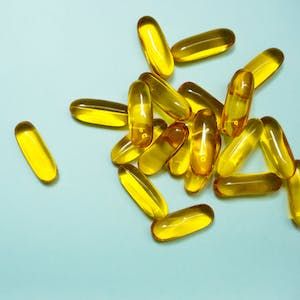Fish Oil, DASH Diet Partially Alters Lipid Metabolism in Patients with Type 2 Diabetes
Fish oil intervention and DASH diet show no statistically significant effect on glycemic control and adiposity.

Due to the association of type 2 diabetes (T2D) with elevated levels of metabolic abnormalities and systemic inflammation, an alteration in the macronutrient composition of diets in patients with diabetes may result in a change in these abnormality levels.
Led by Faisal Ali, Department of Clinical Nutrition and Dietetics, University of Science and Technology, Sana’a, a team of investigators investigated changes in plasma lipid profile, in order to identify potential inflammatory mediators after following dietary approach stop hypertension (DASH) diet and omega-3 fatty acid capsule supplementation.
They observed in patients with T2D, fish oil intervention and DASH diet partially altered lipid metabolism, production of inflammatory mediators, with no statistically significant effect shown on glycemic control and adiposity.
The study was presented at the The Metabolic Institute of America (TMIOA) 2021 World Congress Insulin Resistance Diabetes & Cardiovascular Disease (WCIRDC) Meeting.
The Study
Study investigators noted that omega-3 fatty acids contain two long-chain fats, including eicosapentaenoic acid (EPA) and docosahexaenoic acid (DHA), found in oily fish.
The study was a randomized controlled trial, with 2 parallel groups. Each followed a DASH diet for 12 weeks, with 1 group consuming 6 placebo capsules per day (n = 15) and the other consuming 6 capsules of 1000mg EPA/DHA per day (n = 17).
Investigators measured fasting blood samples and clinical parameters at baseline and post-intervention.
Data show that compared to the placebo group, there were significant differences observed in body weight, body mass index (BMI), blood pressure, and interleukin-6 and necrosis factor-α in both groups. However, triglyceride (TG) levels and VLDL-cholesterol-significantly decreased in only the fish oil groups (P <.05).
Additionally, investigators observed no significant difference within and between the placebo and fish oil groups for adiponectin and leptin at 5.53% and 6.48%, respectively.
Finally, data show no statistically significant effect for fasting glucose, fasting insulin, HOMA of insulin resistance levels, HbA1c, total or LDL, HDL cholesterol in both groups.
Takeaways
Ali and colleagues noted fish oil intervention plus DASH had partial alteration on lipid metabolism and inflammatory mediators, but further study is necessary to determine the overall benefit.
“The nutritional therapy of omega-3 fatty acids supplements may be further investigated by lipidomics and genomics analysis on both type 1 and 2 diabetic patients,” investigators wrote.
“Omega-3 Fatty Acids intervention and DASH Diet Ameliorates Metabolic profiling in Patients with Diabetes Mellitus Type 2,” was presented online at WCIRDC.